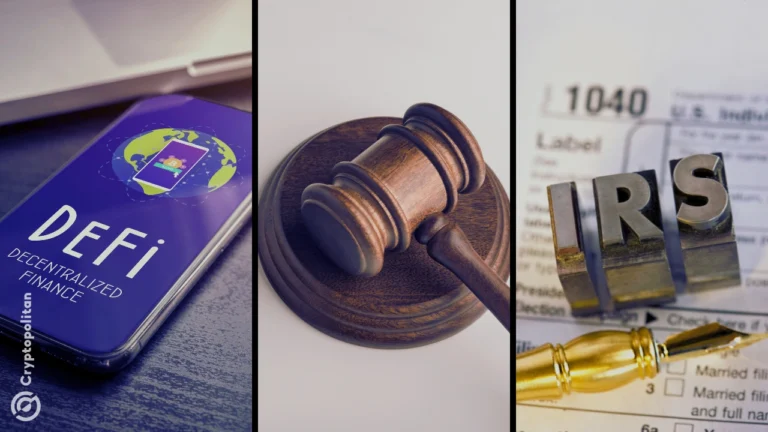Michele Korver of a16z Crypto backed a coalition suing the IRS and U.S. Treasury over new DeFi regulations, arguing they threaten innovation.
The Internal Revenue Service (IRS) and U.S. Treasury are being sued by a coalition of pro-crypto organizations over their new decentralized finance (DeFi) regulations, which critics contend threaten the industry’s future.
Michele Korver, director of regulation at venture capital fund a16z Crypto, has expressed her support for this lawsuit.
Korver announced the news in a post on X on December 29, underscoring a16z’s conviction that DeFi has the potential to render financial services and the digital economy “accessible, efficient, interoperable, dependable, and consumer-focused.”
The Blockchain Association, DeFi Education Fund, and Texas Blockchain Council filed a lawsuit on Dec. 27 that challenges the IRS and U.S. Treasury’s classification of DeFi platforms as “brokers.” DeFi platforms would be compelled to adhere to rigorous reporting and Know Your Customer (KYC) regulations as a result of this regulation.
The legal challenge underscores the increasing recognition of DeFi as a transformative force in the financial sector. It also underscores the growing support from advocates in various sectors, who are advocating for policies that are more transparent and supportive in order to safeguard DeFi’s potential while simultaneously addressing regulatory concerns.
Korver, in agreement with numerous other critics, contended that the new IRS and Treasury regulations violate the Administrative Procedure Act, exceed legal boundaries, and endanger the future of DeFi innovation in the United States.
“DeFi builders should feel confident that industry attorneys are working hard to protect this technology,” she said. “We will keep fighting on all fronts – in the courts, and with the help of Congress and the incoming executive branch.”
DeFi Industry vs. IRS
The lawsuit was the subject of a post on X by Marisa Tashman Coppel, the director of legal at the Blockchain Association, on December 28. She noted that DeFi allows users to engage in a more equitable financial system. “But the government is now forcing intermediaries where none exist, creating more risk and more opportunity for inequity,” Coppel said.
JD Supra, a legal intelligence platform, indicates that the IRS and Treasury’s regulations indicate that DeFi providers are in a “position to know” the nature of transactions, which could lead to aggregate proceeds from the sale of digital assets.
Conversely, the plaintiffs contend that these reporting regulations impose superfluous restrictions on DeFi platforms, impede innovation, and impede the expansion of DeFi.
Lee Bratcher, the President of the Texas Blockchain Council, stated in a post on X that the new IRS broker rule imposes unreasonably high requirements on the digital asset ecosystem. He also cautioned that this regulatory overreach could prompt significant developments in other countries, thereby jeopardizing the United States’ competitiveness in the digital economy.
Similarly, the DeFi Education Fund called the regulations “yet another attempt by the outgoing administration to undermine the crypto industry and DeFi innovations in the United States.”
The IRS and Treasury’s final regulations apply to sales of digital assets on and after January 1, 2027.



